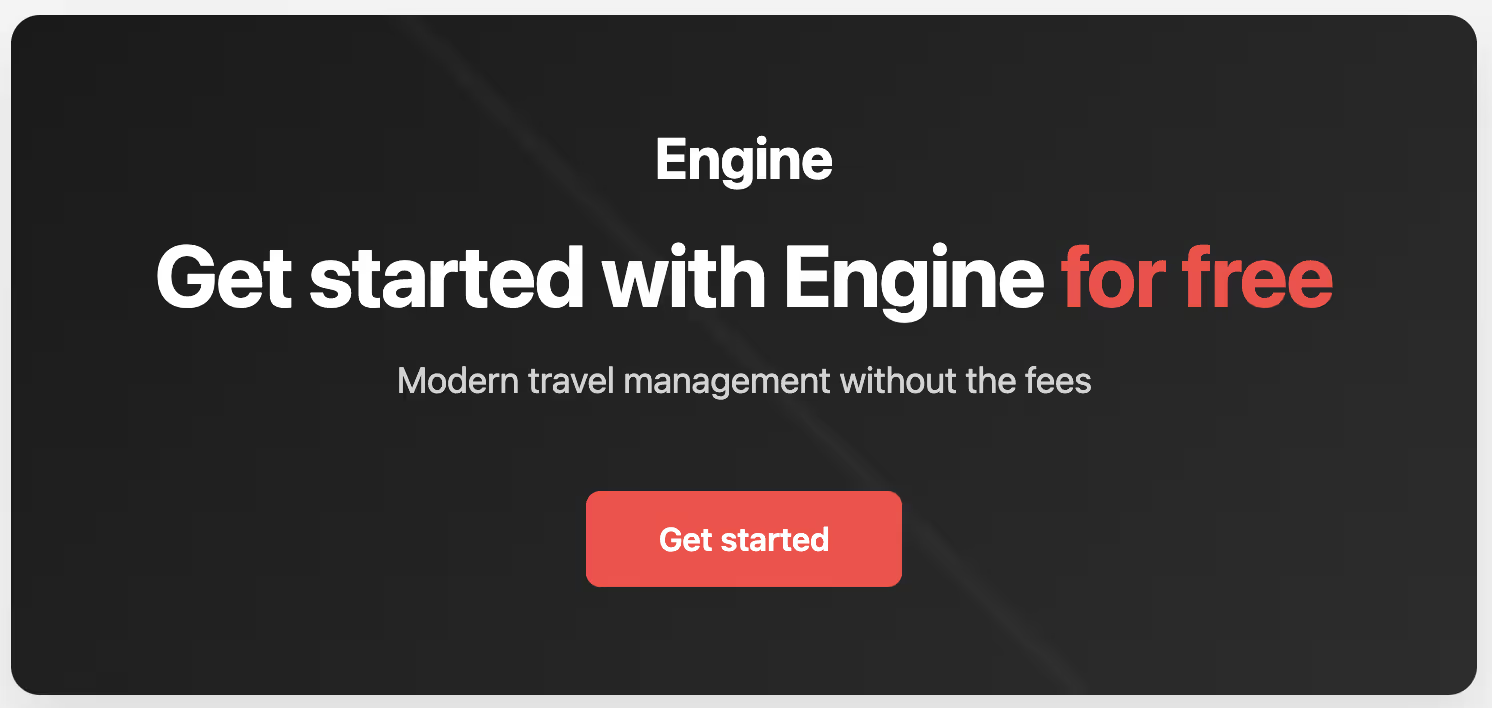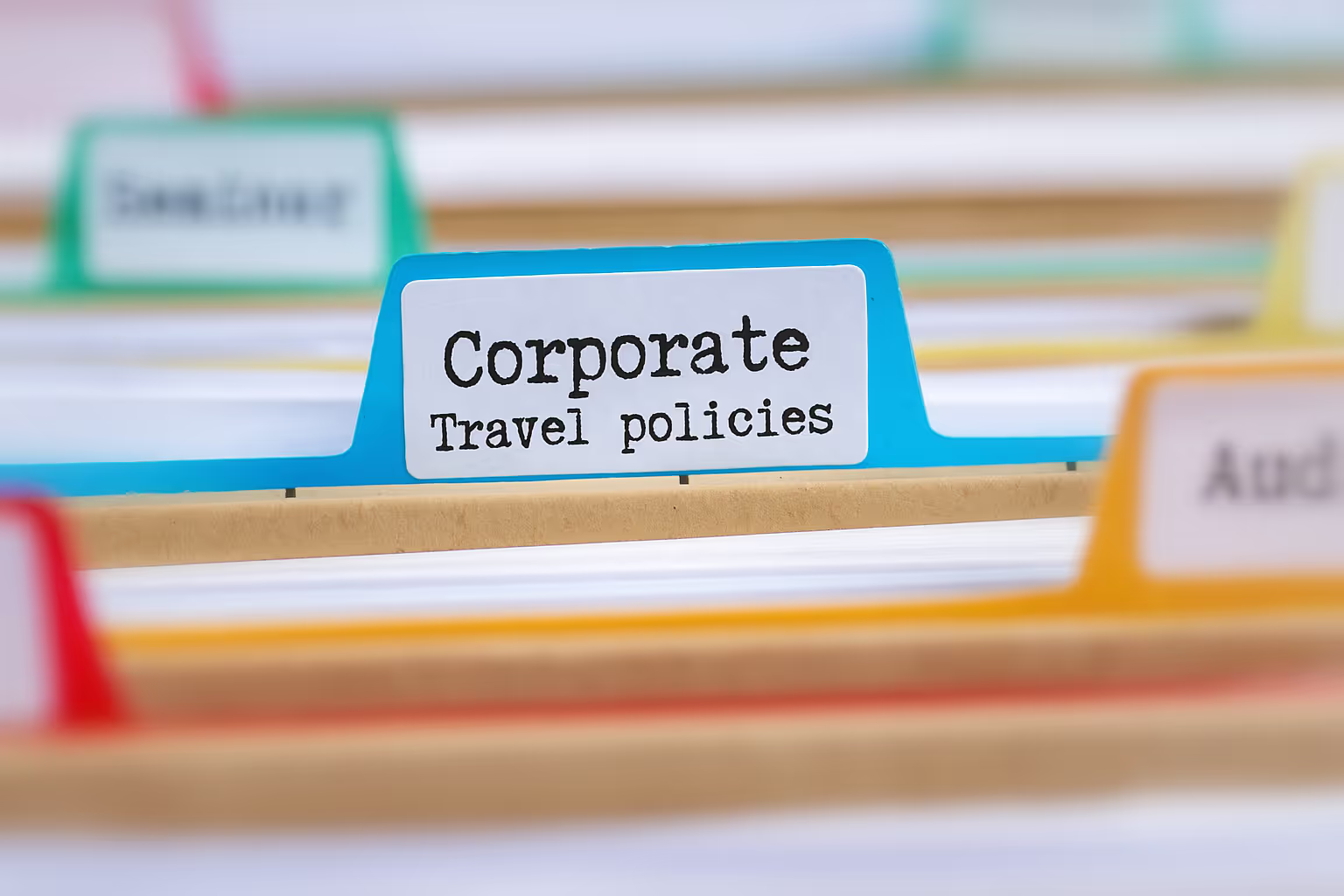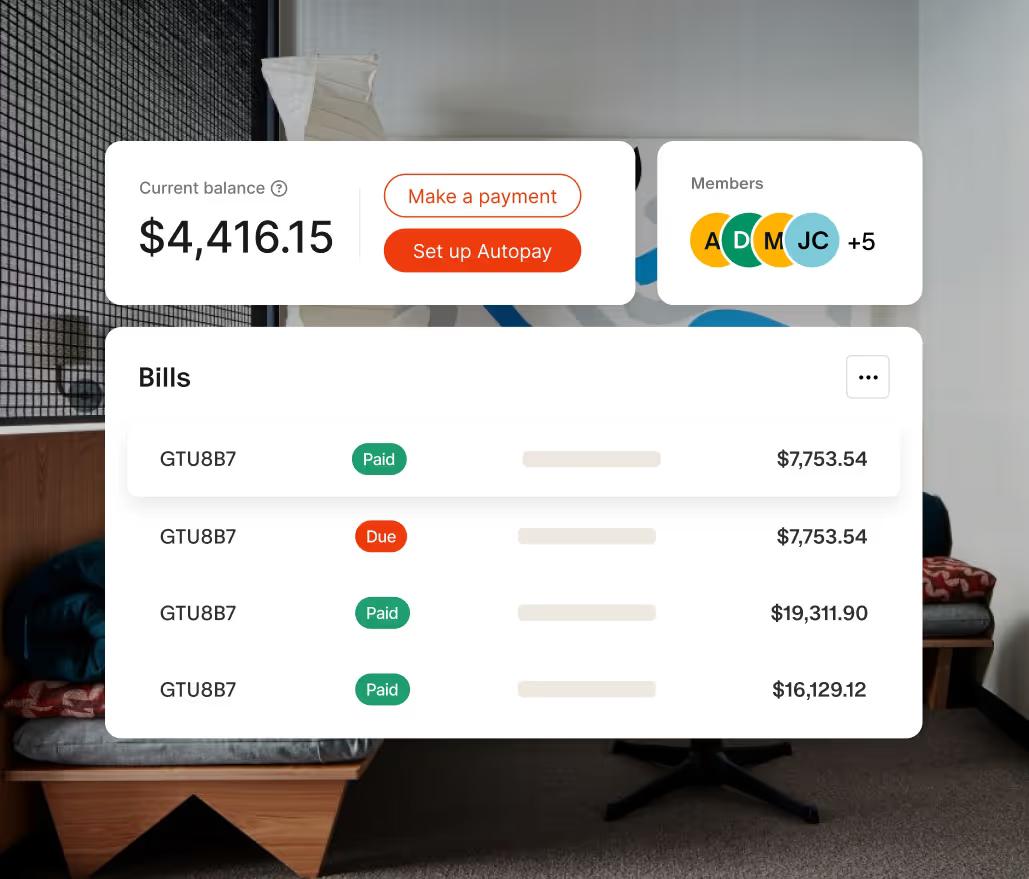Business Travel Compensation Policies: Complete Guide 2025

It's Tuesday morning, and your concrete crew is calling from Phoenix. The hotel won't take their personal credit cards for the group booking. Not enough credit limit.
Your crew is standing in the lobby while you scramble to find another way to pay for their rooms.
Your best foreman just turned down the Denver job. Why? He doesn't have $2,000 sitting on his credit card for two weeks of hotels.
You're losing good workers because your travel policy makes them into unpaid lenders. Most employee business travel policies ignore the cash flow reality your crews face daily.
Fix the money problem first. Everything else is just paperwork.
Choose The Right Compensation Method For Your Crews
Stop copying what other companies do. Pick the compensation method that matches how your crews work and travel.
Per Diem Allowances: Fixed Rates That Don't Match Reality
Per diem means paying workers fixed daily amounts regardless of costs. Your foreman gets $75 daily for meals, whether he eats at Subway or somewhere nicer.
He keeps the difference if he spends less, covers the overage if he spends more.
Companies use per diem to eliminate receipt chasing. A construction company pays crews $80 daily for meals and incidentals during multi-week projects. No receipts, no processing time, no reimbursement delays.
Per Diem Creates Unfair Working Conditions
Outdated Rate Tables: Federal GSA guidelines are like using 2022 gas prices in 2025. Your Denver crew can't afford lunch in San Francisco with $65 daily - they're choosing between eating and making rent. Meanwhile, your rural Wyoming workers get windfall money they don't need.
Geographic Inequality: Same $55 rate for rural Montana and downtown Seattle creates two classes of workers. Your expensive-city crews eat gas station sandwiches while cheap-location crews bank extra cash. Nothing destroys team unity faster than unfair compensation.
Hotel Financing: Per diem covers meals, but your crew still needs $200+ nightly credit for rooms. You solved the receipt problem but ignored the real cash flow crisis driving away good workers.
Direct Reimbursement: How To Lose Your Best Workers
Direct reimbursement means workers pay everything personally, then wait for company money. This traditional business travel compensation method turns your employees into unpaid company lenders.
Your 24-year-old welder with limited credit history just turned down the Denver job. He doesn't have $2,000 sitting on his credit card for two weeks.
Why Reimbursement Destroys Worker Retention
You're Competing Against Companies That Don't Make Workers Finance Business Travel: Your best foreman just took a job with a competitor who pays upfront.
While you're explaining reimbursement timelines, they're offering immediate hotel coverage. Guess who wins that bidding war.
Workers Pay Interest On Your Business Expenses: Even fast reimbursement takes at least 7 days.
Your field technician covering $800 weekly hotels pays $40+ monthly in credit card interest. A hidden tax for having a job with your company.
Emergency Projects Become Crew Nightmares: Equipment breaks Friday afternoon. Crews need immediate hotels.
Personal credit requirements delay critical repairs when you can't afford delays. Your competition moves faster because their workers don't need personal financing approval.
Engine Eliminates Worker Financing Stress
Engine's Incidental Coverage handles unexpected charges at check-in - customers must apply for this coverage, and it works whether you're using Direct Bill or traditional credit card payments.
Corporate Credit Cards: Turning Finance Teams Into Receipt Detectives
Corporate cards eliminate worker financing by having the company pay directly. Workers get company-issued plastic for hotels, flights, and rentals.
Field service companies issue cards to technicians. Manufacturing firms give cards to installation teams. Real-time expense tracking shows spending as it happens.
Why Corporate Cards Waste Your Finance Team's Time
Your Bookkeeper Becomes A Detective Instead Of An Accountant: Monthly statements are like jigsaw puzzles with pieces from five different job sites.
While you're playing "match the Marriott charge to the Morrison project," that job just went 15% over budget because nobody's tracking real costs.
Card Management Eats Administrative Hours: Each worker needs separate cards, spending limits, activation procedures.
Lost cards require replacement calls. Misused cards need investigation meetings. Someone spends 8+ hours monthly managing plastic instead of analyzing project profitability.
Workers Ignore Spending Rules Anyway: Cards can't prevent policy violations automatically.
Your crew books above company rates, chooses expensive vendors, adds unauthorized expenses. Every violation creates more detective work for your finance team.
Corporate cards turn your accountant into a receipt detective while projects hemorrhage money.
Engine Handles Corporate Payment Without The Paperwork
Engine integrates corporate billing with automatic project coding. Every booking flows to the right job code instantly. One monthly invoice organized by project replaces scattered card statements nobody can decode.
Travel Advances: The Double-Work Generator
Travel advances mean giving workers estimated expense money before they travel. You calculate expected costs, issue advances through payroll, then settle differences after jobs complete.
This works for companies with predictable costs. You eliminate worker financing without per diem complexity or corporate card fees.
However, most employee business travel advance systems create operational headaches.
Why Advances Turn Simple Trips Into Accounting Puzzles
Every Trip Gets Processed Twice: You handle money going out, then money coming back.
Pre-trip calculations. Advance approvals. Post-trip reconciliation. Difference payments. Your bookkeeper processes one trip four different times instead of focusing on project analysis.
Estimation Is Like Predicting Weather Three Weeks Out: Underestimate and workers still front personal money.
Overestimate and you've got outstanding advances cluttering your books. Project changes, weather delays, and client modifications make accurate estimation nearly impossible.
Multiple Projects Create Balance-Tracking Nightmares: Workers with concurrent assignments turn advances into accounting puzzles.
Which advance covers the Phoenix job? How much is outstanding for Denver? Month-end becomes detective work instead of simple close.
Advances eliminate immediate cash flow stress but double your processing workload without improving project cost visibility.
Engine's Integrated Workflow
Engine eliminates advance complexity through Direct Bill integration with real-time project tracking. Workers book as needed, costs flow to correct projects automatically, you get one monthly invoice with everything properly allocated.
Calculate What Administrative Work Actually Costs
Companies processing 50 monthly expense reports spend 20 hours on administration that per diem systems eliminate entirely. Calculate your current costs by tracking office time at hourly rates, manager approval time, software costs, and payment processing fees.
Most companies spend $15-25 per expense report in administrative overhead. That's your office manager hunting receipts instead of coordinating jobs.
That's your project manager approving expenses instead of managing sites. That's your bookkeeper cutting individual checks instead of analyzing job costs.
Stop Ignoring Hidden Costs That Kill Budgets
Most companies focus on direct compensation costs while missing the bigger expenses hiding in their current systems:
Worker turnover from financial stress: Young workers with limited credit frequently leave companies requiring personal financing of work travel. Replacement costs typically run 50-150% of annual salary, dwarfing any savings from restrictive compensation policies.
Office team opportunity costs: Time spent processing individual expense reports could be used for job cost analysis, vendor negotiations, or project planning. Most companies should calculate whether detailed expense processing improves cost control or just creates busy work.
False cost control through reimbursement - Many companies discover their "cost control" through reimbursement systems costs more than generous per diem rates when including administrative overhead and worker retention impacts.
Follow The Basic Fairness Rule
Your compensation policy shouldn't create financial hardship for people doing their jobs. Fair practices ensure work travel doesn't become a worker burden.
The fundamental principle is that your team should never lose money or face financial stress because of work travel requirements.
If your best project manager can't afford to travel because he lacks credit card availability, your compensation policy fails.
If your technician pays credit card interest on work expenses while waiting for reimbursement, your policy creates unfair worker costs.
Adjust Rates Based On Location
Travel costs vary dramatically by job location. Paying the same meal per diem for downtown Chicago and rural Iowa creates unfair scenarios where workers either struggle to find adequate food in expensive cities or get excessive payments in low-cost areas.
Smart location tier systems include:
- Tier 1 Cities: New York, San Francisco, Washington DC - Higher rates reflecting costs
- Tier 2 Locations: Denver, Atlanta, Seattle - Moderate rates for mid-cost areas
- Tier 3 Areas: Rural locations, smaller cities - Standard rates for lower-cost regions
- International Jobs: Local currency rates adjusted for different meal patterns
Update rates annually based on cost research, not inflation estimates. Federal per diem rates often lag market reality by 12-18 months, especially in rapidly growing areas where your crews might work.
Provide Emergency And Disruption Coverage
Travel delays and disruptions beyond worker control require automatic compensation coverage. Weather delays, flight cancellations, and mechanical failures shouldn't create worker financial burden requiring approval or personal payment.
Emergency Framework: Provide automatic coverage for weather delays, mechanical failures, and carrier-caused problems. Include emergency contact procedures so workers can access company support during travel crises without financial barriers.
Weekend travel compensation applies when job requirements extend travel over weekends due to flight scheduling or project timing. Fair policies compensate workers for weekend meal costs and provide reasonable allowances when personal time gets consumed by work travel.
International jobs require special handling since workers face currency conversion, different cost structures, and unfamiliar payment systems.
Corporate cards eliminate worker currency risk and provide predictable conversion rates while offering better fraud protection than personal cards abroad.
Build Your Compensation Framework
Building an effective compensation framework requires analyzing how your people travel rather than copying industry standards.
Phase 1: Track and Decide
- Track Current Travel Patterns: Track trip frequency, job site consistency, typical duration, and seasonal variations
- Calculate Total Current Costs: Include administrative overhead, not just direct payments
- Survey Your People: Ask specifically about cash flow stress and process frustration
- Choose Compensation Method: Based on your data, not industry trends
Companies with crews traveling to consistent job sites benefit from per diem systems. Organizations prioritizing exact cost control should consider direct reimbursement. Companies wanting to eliminate worker cash flow stress often choose corporate cards.
Phase 2: Design and Test
Design your compensation framework with clear policy language your people can use.
Your policy should include specific wording like "Workers traveling overnight on company business receive $65 daily meal allowance paid through regular payroll" or "Work travel expenses will be reimbursed within seven business days of receipt submission with proper documentation."
Sample Policy Language:
- Per Diem: "Workers receive $[amount] daily for meals and $[amount] daily for incidentals, paid through payroll before or during travel."
- Reimbursement: "Submit expense reports within 30 days with receipts for amounts over $25. Reimbursement processed within seven business days."
- Corporate Cards: "Use assigned corporate cards for all work travel expenses. Personal charges must be reported and reimbursed within 30 days."
Phase 3: Roll Out and Improve
Communication should focus on worker benefits rather than company cost savings.
Don't launch company-wide immediately, don't keep complex approval processes from old systems, and don't assume workers understand new procedures without clear examples.
The best compensation policies work seamlessly with your travel booking systems. When your team can book hotels for crew travel while knowing exactly how they'll get compensated, the entire travel process becomes friction-free.
Monitor success through worker feedback, administrative time measurements, and total cost analysis.
Good compensation policies improve over time as you learn what works best for your specific travel patterns and crew needs.
Track These Success Metrics:
- Worker satisfaction with compensation method
- Administrative time spent on travel expense processing
- Total cost including all overhead and hidden expenses
- Compliance audit results and tax treatment accuracy
Navigate Compliance & Tax Implications By Compensation Method
Each compensation method creates different tax requirements. Per diem payments receive tax-free treatment when they don't exceed federal per diem rates. Amounts above IRS rates become taxable income requiring W-2 reporting and payroll tax withholding.
Direct reimbursement receives tax-free treatment when covering legitimate business expenses with proper documentation including receipts for expenses over $75 and business purpose documentation per IRS guidelines.
Corporate card expenses receive the same tax treatment when used for legitimate business expenses.
Travel advances equal to expected expenses receive tax-free treatment, but companies must ensure proper post-trip accounting and settlement. Unaccounted advances become taxable income to workers, creating compliance complications.
Engine Eliminates Traditional Compensation Problems

Every traditional business travel compensation method creates different problems - unfair rates, worker retention issues, administrative waste, or accounting complexity.
Engine solves the core compensation problems that drain budgets and drive away good workers through integrated booking and billing that works the way project companies operate.
Complete Worker Protection
With Direct Bill, workers don't front personal money for company travel. Engine handles all the charges upfront and sends you one bill organized by project at the end of each month.
No credit requirements. No reimbursement delays. No interest payments on work expenses.
Zero Administrative Waste
Automatic project coding eliminates detective work.
One monthly invoice organized by project streamlines expense reports, card statements, advance tracking, and receipt processing.
Fair, Automatic Adjustments
Location-smart rates adjust automatically based on job sites. Emergency coverage triggers instantly without policy gaps or manager approvals.
Simple Implementation
Platform setup takes 2-3 days. Workers start booking immediately using existing company credentials. No training needed since Engine works like any booking platform.
For detailed guidance on implementing effective travel policies, see our complete template guide.
Ready to stop making crews finance company travel? Set up your Engine account now and eliminate worker cash flow stress in 48 hours.

Frequently Asked Questions
How does incidental coverage affect worker credit scores or personal finances?
Engine's Incidental Coverage handles unexpected charges at check-in when you've set it up for your account. It works whether you're using Direct Bill or traditional credit card payments.
What happens if projects get cancelled after hotel bookings are made?
Engine's Flex Pro covers cancellations and modifications without penalty fees. Workers aren't personally liable for cancelled bookings, and companies avoid paying change fees that traditional booking methods charge.
How quickly can workers access funds for emergency travel?
With Incidental Coverage set up, workers don't need advance funds for covered charges. This eliminates the need for travel advances, corporate cards, or personal financing of emergency travel situations.
Does Engine integrate with existing payroll and accounting systems?
Engine connects with more than 50 major ERP and accounting systems (including SAP, Oracle, and NetSuite) to automatically sync travel expenses with proper project codes. This eliminates manual data entry while maintaining your existing financial workflows.
What documentation does Engine provide for tax compliance?
Engine automatically generates IRS-compliant documentation for all travel expenses, including business purpose, dates, locations, and amounts. This eliminates compliance risks from manual expense reporting systems.




.jpg)

.avif)













.jpg)







.avif)





